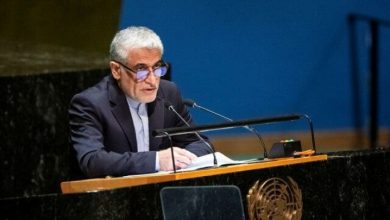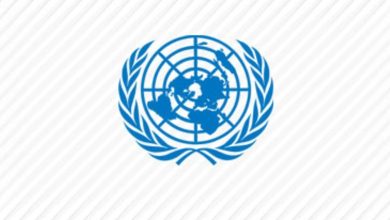Association for Defending Victims of Terrorism – According to Asia One Experts say extremist groups prey on young women and manipulate their emotional vulnerability.
Nisfi Lailatin is one of those who joined the radical groups, but was deradicalised.
While still a teenager, a friend introduced her to an extremist Muslim group – from that point on, her life was turned upside down.
Now, at the age of 22, she shares her path to deradicalisation, “a long and difficult” journey that was only possible with the support of her uncle.
The increased role of radical female militants in Indonesia has been highlighted in recent events. In October an armed woman tried to break into Indonesia’s presidential palace.
Last year, two terrorist attacks involved women – a newlywed couple carried out a suicide bombing at a cathedral, and a 25-year-old university dropout opened fire at officers at Jakarta’s national police headquarters.
Despite their rise in extremist groups, experts say women play even more essential roles in preventing and responding to violent extremism in their communities.
Nisfi grew up in a regular Muslim family in Central Java, Indonesia – home to the world’s largest Muslim population.
Raised by her grandmother, while her parents worked in a city nearby, Nisfi excelled in chemistry and maths at school, but also stood out for reciting the Quran.
When she was in high school, a classmate introduced her to an extremist group. “It looked like an exclusive group. I am an introvert, so I felt that suited my personality,” Nisfi recalled. “And I had no one advising me against it.”
She changed drastically soon enough and her studies were affected. “I became narrow-minded and strict,” she said. “I accepted that I was not supposed to go to university. I was brainwashed that way.”
Such radical teachings seeped into her family life. She would scold her parents if they listened to music and started avoiding conversations with relatives. She also began covering up her body and her face.
Instead of going to university, she wanted to “learn the Quran by heart” at a school in Situbondo, East Java, which she found online.
At the pesantren – an Islamic boarding school – which was affiliated with radical groups that “wanted to turn Indonesia into an Islamic State”, Nisfi was told she could get a scholarship to study in the Middle East.
“They were targeting women specifically,” she said. “They wanted to attract women and persuade us to be their martyrs. They told us that if we wanted to meet the God Almighty we needed to be able to sacrifice ourselves. They bombarded us with these ideas, but I didn’t make any attempts.”
As a “newbie”, she helped with the group’s WhatsApp activity and also made a small donation “for the victims of war”.
‘Brainwashed’ and ‘disoriented’
Nisfi Lailatin says her path to deradicalisation has been “long and difficult”.
PHOTO: South China Morning Post handout
One of Nisfi’s uncles noticed something was wrong when she returned home for the Eid al-Fitr holiday.
“When Fifi [Nisfi’s nickname] was a child she used to recite the Quran with my mother. But then Fifi was reluctant to join family gatherings and even refused to go and pray together,” said Muhamad Jazuli, a prominent community leader involved in peace-building projects.
Jazuli, 55, started asking her parents about her life and began looking into the Islamic school she had joined. He didn’t like what he found.
“It was serious,” he said. “I made several failed attempts to speak with the elders of that group. Once I was successful, I told them I wanted to take my niece back, but they did not let her go.”
Nisfi also resisted, saying she “belonged to a different movement”, but Jazuli managed to convince her to leave with him after repeated efforts. He sent her to a boarding school in Yogyakarta when she insisted on deepening her religious studies.
“We put her under several layers of protection and I chose mentors who could deradicalise her … We did everything we could to bring her back,” he noted. “I knew we only got her body, her heart and mind were still in that group.”
Nisfi tried to escape after members of the radical group reached out to her. But Jazuli, once more, was able to intervene.
Nisfi said the transition period was difficult. “I was really disoriented,” she said. “I needed to be forced to have a change of heart … it took about a year and a half to realise that those ideas they were feeding me were not right.”
Her uncle was relieved when she gave him the face covering and other radical symbols such as flags that she had kept.
“Once I disconnected from that [radical group] my desire to study emerged immediately,” she said.
In a report published last year, the Soufan Centre, a non-profit focused on global security issues, said that since 2015 more women than ever were arrested for terrorist activity in Indonesia, Singapore and Malaysia.
“One thing that Isis did was to innovate in respect to recruitment, including being open to women playing roles,” said Greg Barton, chairman of global Islamic politics at Deakin University in Australia.
About three years after Isis lost its final stronghold in Syria, Barton said the group was “at a low point” in Southeast Asia, although “Isis, al-Qaeda, or other spin-offs may come back in the next decade”.
The arrest of hundreds of people each year in Indonesia suggested they were “very large” and “resilient” networks, he noted.
“I think it’s more likely than not that we will see women playing more significant roles, because that reflects changing expectations with generations and it works to the advantage of terrorist groups.





